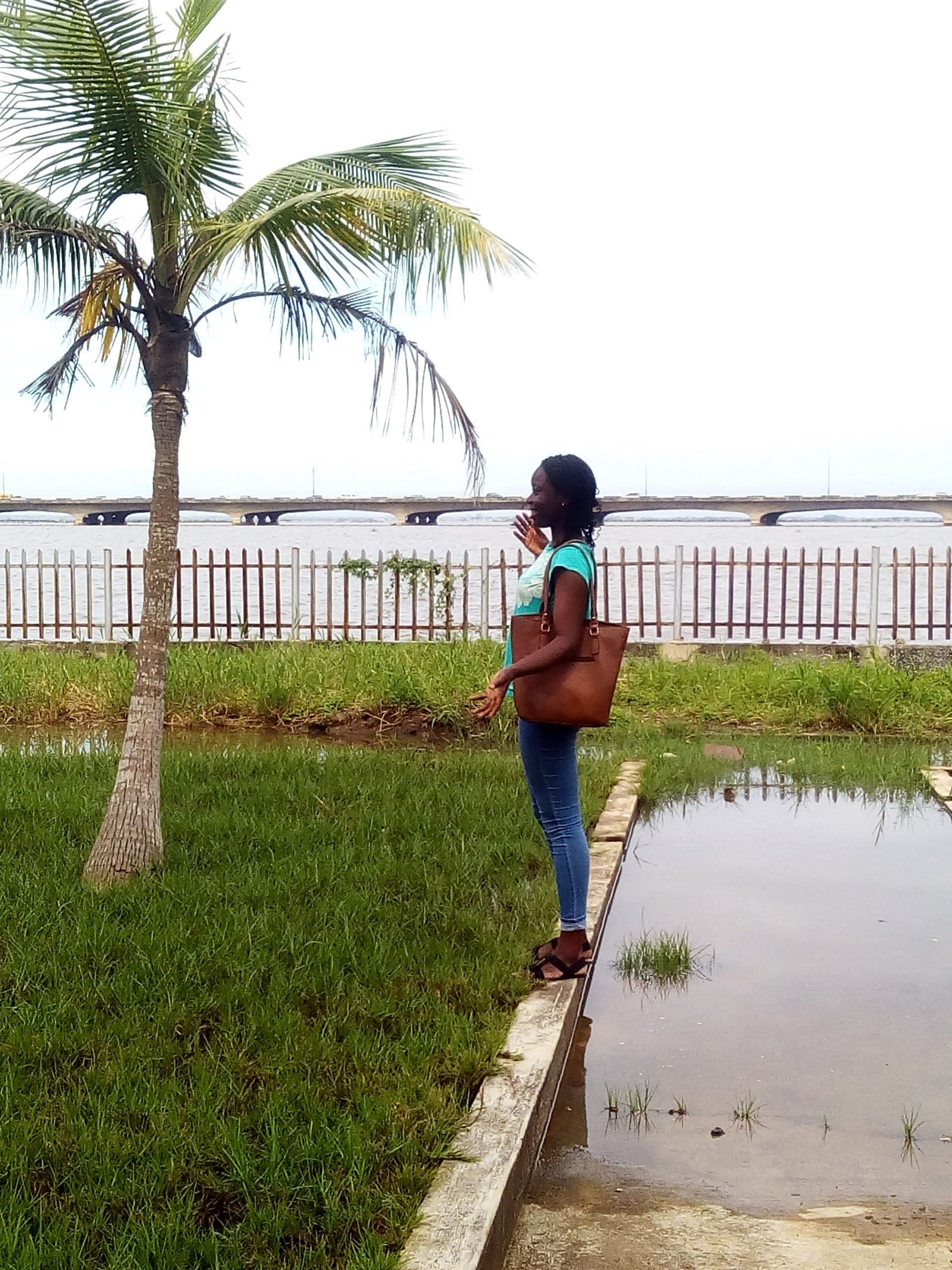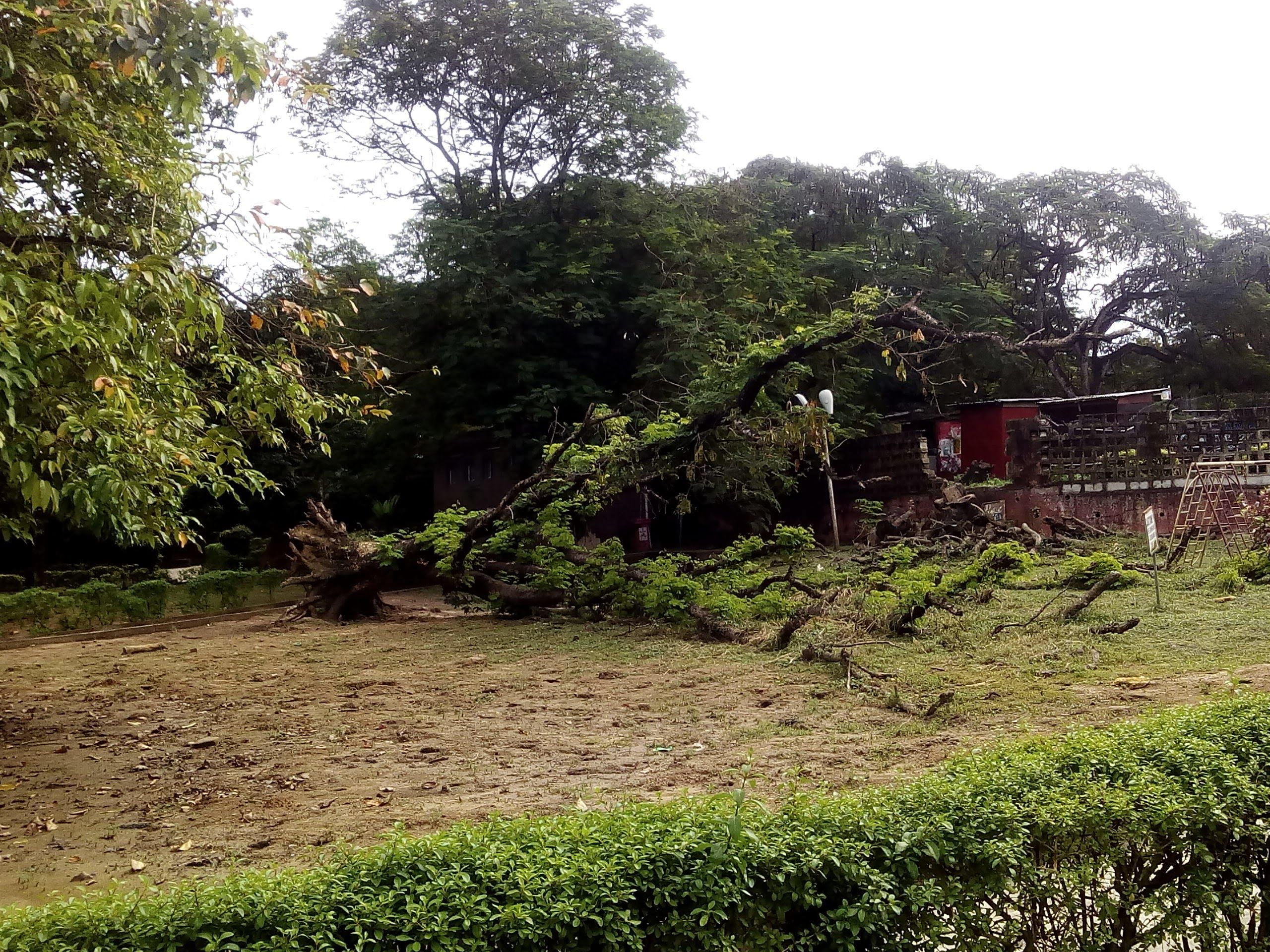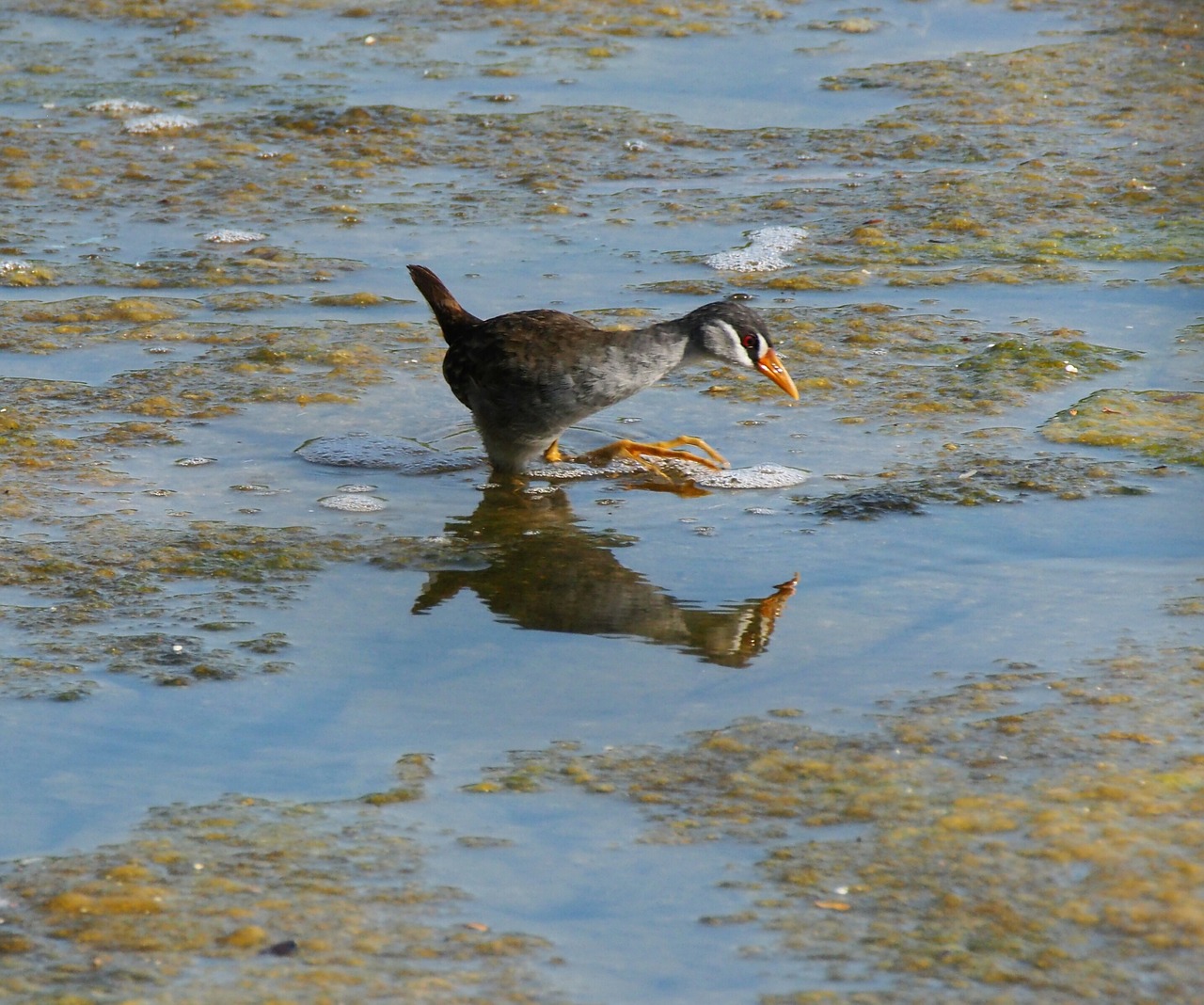An Underrated Ecosystem; The Wetland
Hello fellow Steemians, so on Tuesday I went to my school (University of Lagos) to continue with my clearance process. It is a very stressful process that involves one looking for different lecturers to sign different documents, it is infact very annoying and time consuming.
While I was waiting for my project supervisor to get to school, I just decided to wait somewhere else as my Faculty was just crammed up.
Then I decided to go to the "Lagoon front" because it's not too far from my faculty and because it's always peaceful and quiet. The name was probably gotten because of the location of the garden, it's right in front of the lagoon overlooking the third-mainland bridge (the second longest bridge in Africa and the longest in West Africa).
It could be a wonderful sight depending on the time of the day you're there.
Due to the fact that I wasn't really doing anything I got to observe the things around me, one thing I noticed is there were lot of crabs present in the place, the garden looked very neglected and as someone who did environmental biology while in school, I soon realized that the lagoon front is an example of a "wetland ecosystem".
Most wetland ecosystems if not degraded, they are usually viewed as unimportant and this is probably as a result of people having little or no knowledge about the importance and benefits of this amazing ecosystem; hence, the reason for this post.

a random picture of me at the lagoon front
The General Concept
From the way it is named, a wetland ecosystem is basically an area filled with water either permanently or seasonally.
According to the United states Environmental Protection Agency; Wetlands are areas where water covers the soil, or is present either at or near the surface of the soil all year or for varying periods of time during the year, including during the growing season.
Most times, It can be described as an interphase between the aquatic and terrestrial ecosystem, but not all since some wetlands can exist in isolation from water bodies, in this case they'll be found in depressions and their source of water will be the ground water and precipitation. In a wetland, saturation is a dominant factor.
Wetlands mostly result from flooding of the area and it is usually dominated by hydrophillic(water loving) plants. Due to the nature of this ecosystem, the type of plants it has are those that are well adapted to such high level of saturation.
The wetland ecosystem shares some characteristics of the terrestrial ecosystem such as the presence of rooted plants and the characteristics of the aquatic ecosystem such as the presence of standing water. It has some unique features that differentiates it from other ecosystems such as the presence of hydric soil and hydrophilic plants.
How do you identify a wetland ecosystem??
There are indicators used in identity wetland ecosystems;
Hydrologic indicators: In a typical wetland, the presence of standing or flowing water is usually seen especially during the growing season. Water marks could be seen on trees present in the area too and they show that water periodically cobers the area to the depth shown on the tree.
Soil indicators: Wetlands usually have a bluish-gray colour below the soil surface and the odor of rotten egg. This is as a result of hydrogen sulphide as a byproduct of the decomposing plant materials. Wetland soils mainly contain decomposed plant materials in form of peats and muck.
Vegetative indicators: The trees here are usually shallow rooted, mostly the roots grow from the plant stem. The plants can also withstand high soil saturation for a long time. Wetlands have a vast array of plant species.
The Importance of Wetland Ecosystems
At this point you might be wondering what sort of importance the wetland ecosystem has, right? Well let's get right to it!!
It often functions as a flood break; when rivers or water bodies overflow, wetlands absorb and slow down the flood Waters. This ability of the ecosystem in turn helps to protect lives and properties from the effect of flooding
They help to absorb excess nutrient sediment and pollutants before they reach water bodies, Hence it acts in pollution control.
Wetlands absorb carbon dioxide and other green house gases, thereby reducing their effect on the environment and also climate change
The vegetation of the ecosystem could help prevent erosion with their roots that holds the soil in place
The ecosystem has a wide array of species so it also aids in conserving them.
It could be used for agricultural purposes such as livestock grazing,
Recreational activities such as swimming, boating, fishing and bird watching.
Fun fact: wetlands purify water and can be referred to as kidneys
They hold water and can be referred to as sponges.
As important as this ecosystem is, the ecosystem is underrated and thus is degraded and lost at a high rate due to activities such as;
Hydrologic alteration; change in the quality and quantity of water found in the ecosystem
Urbanization
Industrialization
Using wetlands as a dumpsite
Mining.
All these activities usually lead to the loss of biodiversity in the ecosystem, or even totally erase such an ecosystem.
Wetland Management
This could be achieved by;
Using buffers: such as bands of vegetation along the egdes of the wetland. This could reduce human activities to a certain extent
Enforcing laws that protect wetlands
Through regular and consistent monitoring too
Enlightening and educating people on the importance and values ( I think that's what I just did)
To conclude, Wetlands while usually underrated by most, is a very important ecosystem that offers a lot of ecosystem services to us and it would be In our best interest if this ecosystems continue to exist!!
Thanks for reading through✌
Comments and questions will be very welcome.
Sources
Why are wetlands important



Well articulated article, I must say. I studied botany, therefore environmentally biology is quite familiar to me. There are some few questions I would like to ask;
How are wetlands different from swamps?
Are the water in wetlands freshwaters or brackish/salt water?
About the species composition of plants in wetlands being grasses and mosses, I have a serious objection to that. Wetlands have diverse species of flood tolerant plants depending on the land use. You might want to check this again.
Thanks for sharing
Thanks so much for reading @gentleshaid. To answer your questions ;
A swamp is just a type of wetland; there are four types: Bog, Fen, Swamp and Marsh. Maybe I'll do another post on them
On the type of water found in wetlands, it depends on the source of water to the wetland.
If the wetland is found around a freshwater body, it's most likely a freshwater wetland and if it's around a brackish water body, it'll be a blackish wetland.
The source of water also determines the type of wetland it'll be (bog, fen, marsh or swamp)
I remember some people in our area. Use wetlands for fish farming very rich in worms. Thanks for this.
😃...You're very welcome.
Wow, this is well written. The language used is clear and understandable.
My observations.
Ps: put the br btw <...>
Nice effort ma'am.
Thank you very much for the observation... I'll do that now.
You're welcomed
Hello @fololade thanks for enlightening us on the wetland, sincerely i never knew what that word meant until now.
keep steeming!
You're welcome!!. I'm glad you learnt something from the post.
You're welcome!!. I'm glad you learnt something from the post.
It's quite refreshing to learn about new stuffs, I've learnt a new thing today from your post. Wetlands , I'd never heard about them until I read this. Thanks
I liked the fun fact.
I'm glad you liked it.....😀
please help each other to produce. if you help me, i will help you more. the world's steemian greetings.
tolong saling membantu untuk menghasilkan.jika anda bantu saya, saya akan lebih membantu anda.salam steemian sedunia
Congratulations @fololade! You have completed some achievement on Steemit and have been rewarded with new badge(s) :
Click on any badge to view your own Board of Honor on SteemitBoard.
To support your work, I also upvoted your post!
For more information about SteemitBoard, click here
If you no longer want to receive notifications, reply to this comment with the word
STOPThat was an interesting post. Perspectives fo matter, if I see such an environment, I would be calculating how much bags of cement It will take to have the whole place all looking cute and comfy :)
Thanks for sharing.
That's the reason why we need to know the benefits of such environments. Thank you for reading through
You are welcome.
Congratulations! This post has been upvoted from the communal account, @minnowsupport, by fololade from the Minnow Support Project. It's a witness project run by aggroed, ausbitbank, teamsteem, theprophet0, someguy123, neoxian, followbtcnews, and netuoso. The goal is to help Steemit grow by supporting Minnows. Please find us at the Peace, Abundance, and Liberty Network (PALnet) Discord Channel. It's a completely public and open space to all members of the Steemit community who voluntarily choose to be there.
If you would like to delegate to the Minnow Support Project you can do so by clicking on the following links: 50SP, 100SP, 250SP, 500SP, 1000SP, 5000SP.
Be sure to leave at least 50SP undelegated on your account.